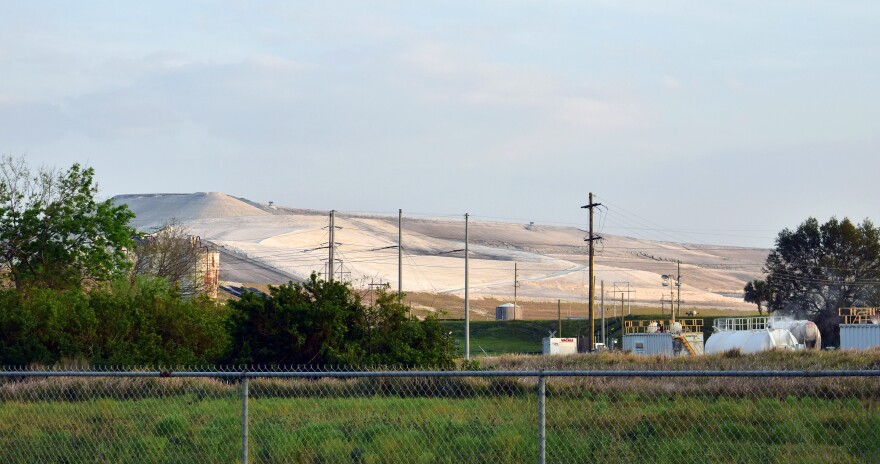A new law signed by Gov. Ron DeSantis paves the way for phosphogypsum to be used in road construction across Florida. The material is toxic waste created while making phosphoric acid used in fertilizers. It also holds radium and uranium.
"Radium is of particular concern because it decays to form radon, a cancer-causing, radioactive gas," according to the Environmental Protection Agency.
House Bill 1191 authorizes the Florida Department of Transportation to conduct feasibility studies on using the phosphate byproduct as an aggregate material in the construction of new roadways.
Ragan Whitlock is a state attorney for the Center for Biological Diversity. He said the radioactive material is currently banned from such use by the EPA. "It's worth noting this study will not adequately address the health and safety concerns," he said.
Whitlock said amendments were offered while the bill was on the House floor to bring in the EPA and the Florida Department of Environmental Protection to assist in the studies.
"Legislators rejecting the incorporation of these agencies into the study should tell you all you need to know," Whitlock said.
Currently, the EPA requires the material to be stored away from people and roads due to the health risks associated with it and is banned from any use other than safe storage in a phosphogypsum stack, like at Piney Point.
A leak in a reservoir at the Manatee County plant in 2021 led officials to pump more than 200 million gallons of polluted water into Tampa Bay.
"You'll hear from the phosphate industry that we should be getting up to speed with countries like Morocco and others who currently use this material in road construction," Whitlock said. "But another country's ability to (saddle) their citizens with environmental risks is not a justification for our own country to do it."
Whitlock said using the toxic waste in road projects will put construction workers at a higher risk for cancer.
He pointed to an analysis by the EPA that says "the use of phosphogypsum in road construction always resulted in a (maximum individual lifetime risk) significantly greater than the presumptively safe level," regardless of the amount of radium present.
Whitlock added that phosphate mines in Southwest and Central Florida are some of the most radioactive in the world.
The state creates over 30 million tons of phosphogypsum a year and currently stores over a billion tons of the toxic byproduct. Whitlock said the process of phosphate mining creates a lot of waste — every usable ton of phosphoric acid generates approximately five tons of it.
He adds the material also raises concerns over the contamination of groundwater and the air from cars traveling on roads paved with radioactive waste.
Ryan Smart is the executive director of the Florida Springs Council. He said phosphate mining has environmental consequences and is a major concern for his group.
"There are lots of ways to harm a spring," he said. "But so far, there's really only been one way to kill a spring — and that's been phosphate mining."
The Council also opposes the recent proposals to begin phosphate mining in the Santa Fe River Valley in North Florida. Smart said the cost associated with storing the hazardous material should be shouldered by the phosphate mining industry.
Copyright 2023 WUSF 89.7. To see more, visit WUSF 89.7.



